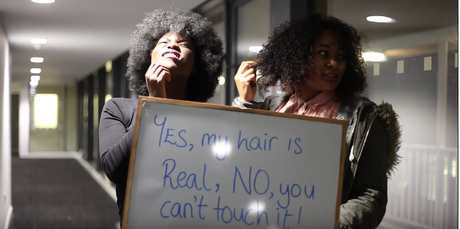
Source: https://www.youtube.com/watch?v=aWVU3BCXcYk
“Where are you really from?”
“What are you?”
“You don’t look Latina.”
“Microaggressions” are “brief and commonplace daily verbal, behavioral, or environmental indignities, whether intentional or unintentional, that communicate hostile, derogatory, or negative racial slights and insults toward people of color,” according to Buzzfeed. Though they have certainly persisted for some time, it seems there is a more recent, growing movement to push back on this phenomenon: Many colleges and universities specifically have been working towards addressing and eradicating them.
But considering that microaggresions aren’t isolated actions but a form of racism, banning them may be ineffective. As one study published by the Teachers College at Columbia University found, racism is “more likely than ever to be disguised and covert” and has evolved from the “old fashioned form” in which “overt racial hatred and bigotry is consciously and publicly displayed” to a more “ambiguous and nebulous form that is more difficult to identify and acknowledge.” Attempting to ban microaggressions fails to recognize that they aren’t an isolated issue, but part of a larger system of discrimination — the same system that, for example, results in marginalized groups disproportionately experiencing police brutality, being denied educational opportunities and other forms of systemic discrimination evident in our society.
Banning microaggressions also fails to address the way in which they are not solely perpetuated against marginalized communities but within and between them as well. I recently came across a project in which Fordham University students held up signs expressing the microaggressions they have experienced. I realized that even as an Afro-Latina who has been subjected to microaggressions, I have perpetuated some myself. That I am capable of this type of behavior is scary, but proves that these attitudes have stealthily infiltrated our society in a significant, even subconscious way that transcends even our own, individual identities.
Rather than banning them, therefore, we need to start conducting conversations about such oppressive behavior that offensively and ignorantly reduces complex humans to stereotypes. The truth is that not all people who make microaggressive statements are inherently evil: Because microagressions are part and parcel of broader power structures and the societal impulse to categorize individuals, many people are not aware they’re behaving in this way or of the effect their actions have. But just because they’re unintentional doesn’t mean they shouldn’t be addressed. Doing so — even if uncomfortable in the moment — is a first, necessary step towards achieving equality.

